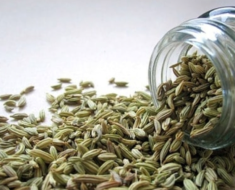
Medical News Today
The rise of food allergies among children is everywhere. Reports have proven that 1 in 10 children have a certain kind of foodallergy. Further, about 40% of the children have a severe allergic reaction that is life-threatening. An allergic reaction occurs when the body becomes overprotective. It’s important to know what you can have and what you need to avoid.
Surprising facts about food allergies
1. The allergies are genetic.
If you have a family with a history of allergies, the chances are that you will also be suffering from the same. It can be anything that you can be allergic to.
2. The food allergy testing is not accurate.
Since the body is growing and changing, the allergic reaction can be tricky. Likewise, most allergy testing done gets inaccurate results. You can be allergic to certain foods, but the testing might not show it.
3. Intolerances are not life-threatening.
Since 1 in 10 children have a food allergy, they must be cautious of eating. Besides, food intolerances are different from food allergies. The food intolerances can cause discomfort but are not life-threatening. But the allergic reaction is life-threatening if not given proper care.
4. 8 foods cause most allergies
Everyone is allergic to only a single type of food. Similarly, there are only eight foods that people are most allergic to. These are peanuts, shellfish, wheat, eggs, milk, soy, fish, and nuts. Introducing your child to these food allergies will help them to prevent the allergies.
5. There are no reliable tests when it comes to food intolerances.
Where people know about food allergies, food intolerance has not reached a particular stage yet. Some people have claimed that it is challenging to test food intolerances, and it is not accurate. The main thing is all about listening to your body and know what it wants. If you can’t tolerate something, don’t eat that.
6. You cannot have allergic food ever.
All the people having allergic reactions cannot have that food forever in their lives. Further, if you have severe food allergies, the best thing is to wash the equipment to make food ahead. Wipe all the areas and utensils so that the food is not taken by someone having a food allergy. Also, please don’t buy those ingredients ever so you will not have to cook them anyway.
7. People suffer from milk allergies.
You will know if you have a milk allergy if you are having trouble breathing or swelling on the body. Many times, people are allergic to cow or soy milk, where there is more lactose. Many people become lactose intolerant if the small intestine is damaged due to bacterial infection.
8. Tick induced meat allergy
When the spiders bite a human, some people can’t have steak anymore. Further, the people not getting a bite from lone star tick can eat a burger but not suffering will face symptoms within 4 to 6 hours. There is no way of stopping the allergy. People suffering from alpha-gal allergy have to carry an EpiPen in case of an emergency.
9. Allergies can be after adolescence.
Most people believe that children are allergic to foods right after their birth. But the food allergy can develop at any time. It is common among teenagers since their body is constantly changing. Having regular allergy testing is necessary to know if you are allergic to any newly developed allergies.
10. You can suffer from exercise-induced allergies.
It might sound bizarre, but many people suffer from exercise allergies also. Further, many people eat a specific type of food and go out for exercise. But when you exercise after you eat, the body temperature rises, triggering an allergic reaction. If you are having such type of response, wait few hours after exercises to eat.
Conclusion
More than 50 million people suffer from food allergies, and they are the cause of the deaths of so many people. Likewise, if you think you are protecting them without introducing your child to a food allergen, it is not like that. It’s best to introduce allergens such as peanut to prevent peanut allergy between 4 to 6 months. This way, you are protecting their lives as well.









































